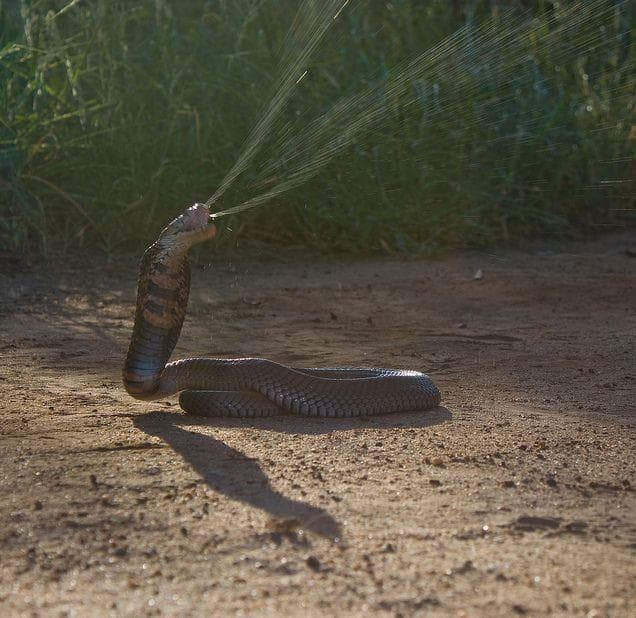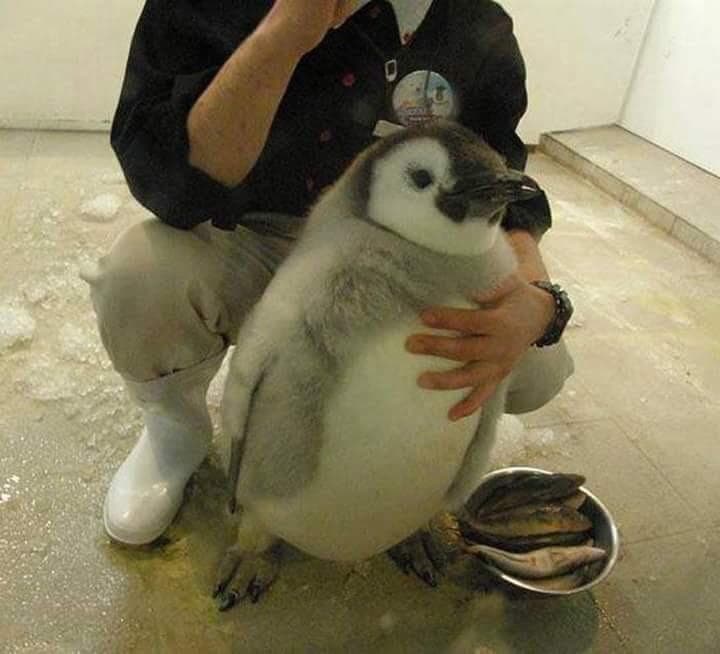-
(#6) Dairy Cows For The Lactose Intolerant
It's estimated that 65% of the human population is lactose intolerant. In places like Asia, up to 90% of people have issues digesting dairy. It's pretty much a tragedy that a large swath of the population can't enjoy a half pint of lactose-laden Ben & Jerry's and an entire Dominos pizza. To fix this grave injustice, scientists have genetically modified a cow that creates milk without β-lactoglobulin, the protein that makes so many people sick. As a bonus, this milk loaded with extra casein, which means it's supposedly more nutritious than your average cow juice.
-
(#4) Glow Kitties
Much like their fellow house pet Ruppy, the world's first transgenic dog, South Korean scientists managed to breed white Turkish Angora cats that glow under UV lights. The cats were cloned from their mother's altered skin cells, and scientists believe their breakthrough could lead to cloning endangered species like tigers and leopards. They also hope the cats can bring insight to more than genetic diseases that affect both cats and humans.
-
(#9) Slaughterhouse Cattle That Feel No Pain
Pain and suffering of innocent farm animals is one of the most constant arguments people have against factory farming. Society's resigned itself to eating grass-fed cattle, thinking it has a better life, but the truth is, when it gets to the chopping block, it's still going to hurt. What if there was a way to have your beef without causing intense pain to another animal? Scientists are mulling it over.
One day may see genetically modified cattle that has dulled (or no) pain receptors. A paper in Neuroethics outlines the argument, which states various instances of human children who had a gene mutation that left them unable to feel pain. This is terrible for a human, who uses pain to sense danger and illness, but would it matter for a cow that's on its way to the slaughter house? Would this even be humane? The FDA doesn't yet have a verdict, and it's far more likely that we'll see a rise in cruelty-free, lab-grown burgers before people start chopping up a cow's nerve cells.
-
(#8) Organ Donor Pigs
One day, pigs may be able to help save human lives. George Church, a geneticist at Harvard University, hopes to create swine that could serve as donors for human organ transplants. But pigs have porcine endogen retroviruses (PERVs) in their embryos which are embedded in their very DNA and can't be treated but can cause diseases in humans. Thus, the fear in using pigs as human organ containers is that these diseases would be transferred to a human transplant recipient (especially when recipients are on immunosuppressants) but would be irreversible. Church led his team to inactivate 62 of the PERVs and also modified over 20 more genes from a separate set of pig embryos. One of the genes they modified encoded proteins that line the surface of pig cells. In humans, these proteins cause blood clotting and an immune response – deadly for those getting a transplant. If a pig is ever to be a successful donor, Church's modifications are abundantly necessary.
-
(#7) Low-Fat Pigs
Bacon is one of life's finer pleasures, but it's pretty darn awful for you. Chinese scientists have been genetically modifying pigs in order to reduce the fat content of their meat (i.e. they're making low fat piglets).
According to a report published in the Proceedings of the National Academy of Sciences, the scientists have managed to create 12 healthy pigs with 24% less body fat than their non-GMO brethren by modifying a gene that allows pigs to better regulate body temperature through burning fat.
This revolutionary advancement isn't just a win for humans looking to consume low-fat BLTs. These pigs are less expensive to raise (it's estimated that farmers will save millions in feeding costs), and they suffer less in cold weather (a win for frozen piggies everywhere).
-
(#3) Mice That Make Baby Formula
Not every mother can breastfeed, and while synthetic formula definitely does its job, it's lacking in certain proteins that can boost a baby's immune system. Lactoferrin is naturally occurring in human breast milk and helps babies gain resistance to bacteria and fungi. In an effort to improve baby formula, Russian scientists have been splicing mice with human genes in order to spawn rodents that produce milk with lactoferrin. Of course, you'd need a whole lot of mice to create enough milk for all the human babies in the world who need it, but this is just the beginning. Scientists hope this research will expand to animals like goats and cows that could produce milk on a much larger scale.
New Random Displays Display All By Ranking
About This Tool
If you think genetically modified crops are controversial, then genetically modified animals are a completely different crazy science. Scientists have made great progress in the field of genetic modification of animals. As long as the use of precise gene-editing tools, scientists can change the genes of animals at will. We can know various customize animals nowadays, such as cute teacup pigs, fast-growing salmon, etc.
In order to satisfy the increasing desire of human beings, these crazy genetic modification experiments have become more and more common. But will the future be as beautiful as imagined? You could find 12 weird animals in this random tool which reveals insane ways of genetic modification.
Our data comes from Ranker, If you want to participate in the ranking of items displayed on this page, please click here.















